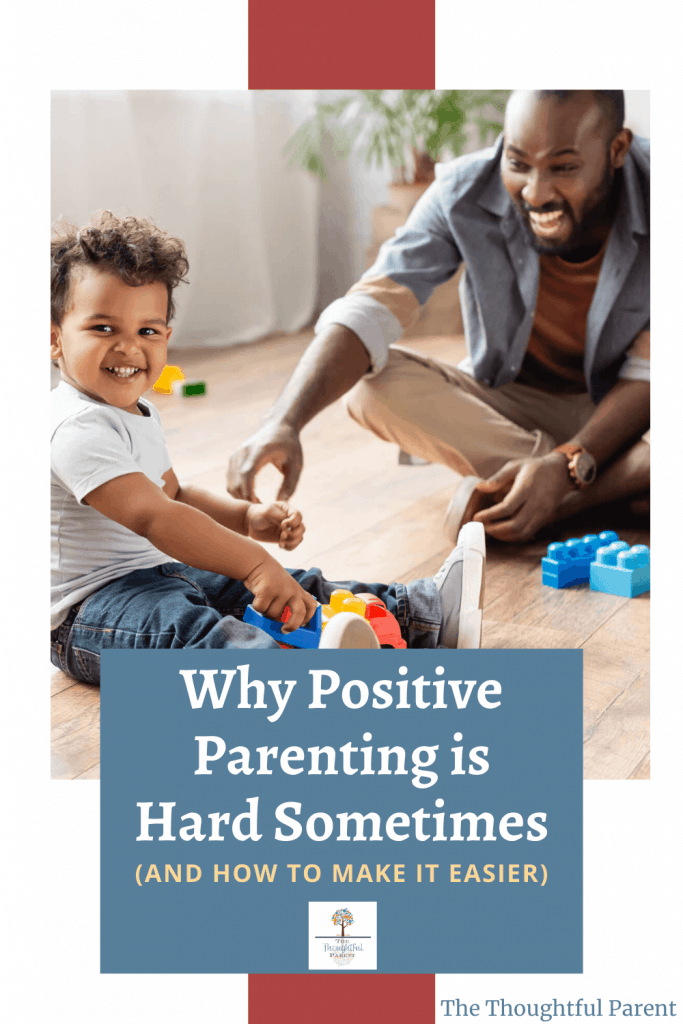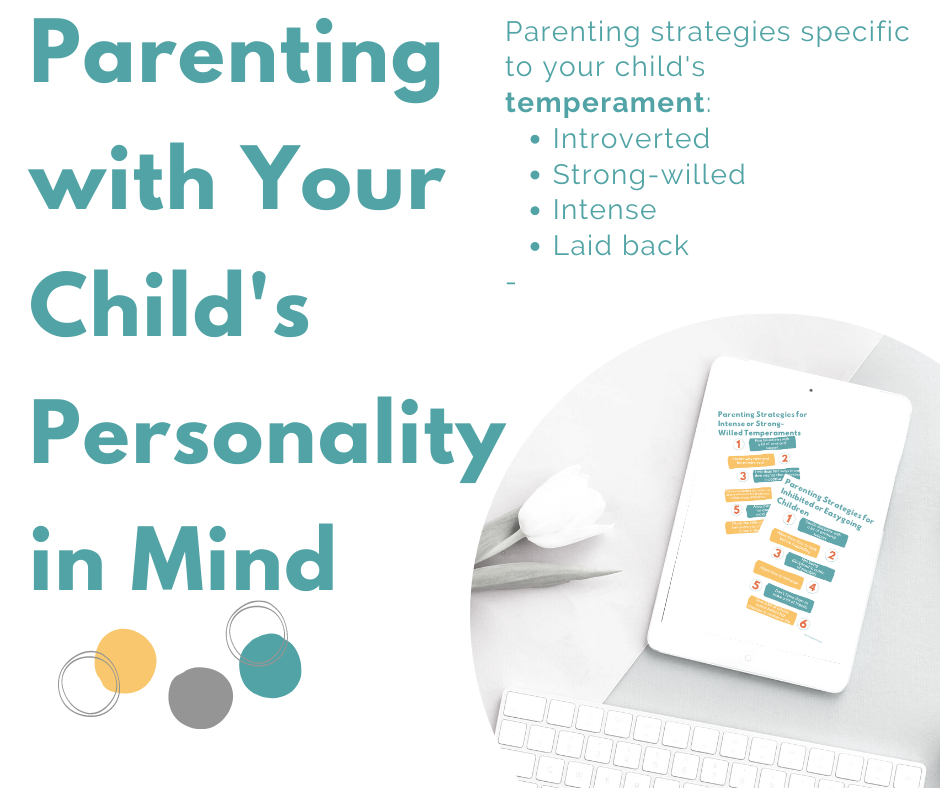Sneak peek: Why is positive parenting so hard sometimes? Research enlightens us on what is going on in our brains and how we can become more positive parents.
You know the old expression about wearing rose-colored glasses? Well, it turns out most of us go through life wearing colored glasses. Instead of looking at the world with a positive perspective, science tells us that most humans have a negative bias. That means we are more attracted to and focus more on the negative things in our lives than the positive.
Bummer, right?
Well, there’s a good reason for it. Back in our prehistoric days, humans needed that negativity bias, to survive. Looking for the negative in the environment made us more aware of predators and things that could harm us. So you can thank that negativity bias for a little bit for your ancestors’ survival, and how you got to be here.
But in the modern world, the negativity bias does not serve us very well, especially when we’re trying to practice positive parenting. Sure, it may protect us from predators, but when was the last time a hungry lion was chasing you down the street? In our daily lives with our kids, the negativity bias isn’t great for us in our relationships. This same bias makes it much more common for us to find all those nitpicky negative things that our child does than the positive things. You know the times when they leave the milk cup on the table and it leaves a ring on the wood, or the times when they leave their clothes all over the floor sort of putting them in the laundry hamper. Yep, we see all those things due to our negativity bias.
Related reading: Why is Positive Parenting Important and How Does it Help My Child?

Positive Parenting and Our Brains
While all this is going on in our brain we also have parenting books telling us to look for the positive in our child’s behavior.
You’ve heard this, right? It’s become a pillar of positive parenting.
Find three positive behaviors for every negative behavior. It’s real. Research studies have shown that it takes at least three positive events to overcome one negative event (some researchers say 5:1 is even better). That’s what some have called the “magic ratio.” For every 1 negative behavior we see or point out, we should aim to find 3 positive behaviors.
So the advice to look for the positive in your child’s behavior is actually really smart. The problem is our brains are wired to do just the opposite. So are we forever stuck in a negative bias? Should we give up and just keep finding all those negative behaviors that our kids do?
Simply put, no. All hope is not lost. If we are intentional, we can overcome our negativity bias and lean into positive parenting a bit more.
There are tons of great reasons to try this too. Research shows that looking for the positive in our children’s behavior really does help our relationship with them. It’s not just about making them feel appreciated either. You might be thinking: “Sure, it’s easy to have a good relationship with my child when I’m overlooking all the negative things they do.” It’s not really about overlooking the negative behaviors. We still see all the negative behaviors our children do, but if we can re-train our brains to also see the positives, things will likely improve.

Why does the “magic ratio” work?
Well, without getting into too much psychobabble about positive reinforcement, it works because what we focus on tends to increase. If we focus our attention (and our children’s attention) on their positive behaviors, our child naturally wants to gain our appreciation so they tend to do more of those things.
Secondly, this approach tends to work because it helps you find patterns. That’s right, we can go data snooping into our own behavior. If, after showing appreciation for your child’s positive behavior, you might begin to notice a pattern. For example, you might notice that your child has better table manners when you have dinner at 6 p.m. rather than 7 p.m. Ding-ding! You’ve just found a clue to understanding your child. Perhaps their lack of table manners at 7 p.m. was due to fatigue. Had you not been intentionally trying to notice positive behavior, you might never have noticed that pattern.

Overcoming the Negativity Bias to Practice Positive Parenting
Okay, this magic 3:1 ratio sounds like a winner. But how do we actually implement it?
Overlearn. This clever technique was discussed in The Scaffold Effect and I find it very helpful. When you begin looking for your child’s positive behaviors (and yes, they do exist), start by looking for more than 3:1 ratio. That’s right. Aim high! Each time your child does something less-than-stellar, keep your eye out for something positive to praise. Try it; it works.
Savor the positive. In our lives as parents, it’s often easy to take the “good stuff” for granted. The times are kids crawl up on our laps to cuddle or the times they actually remember to take out the trash without being asked. One key to overcoming the negativity bias is to actually take a moment to savor these positive events. It sounds silly to sit and ponder how nice it was that your child took out the trash but that’s what actually helps us remember these positive events more easily. Let them sink in. Next time your child says “I love you” or “you’re the best” take a moment to put that into your memory bank. You’ll be glad later.

Positive parenting isn’t always easy.
Despite our best efforts, sometimes our brain works against us. By knowing a bit more about how to overcome our negativity bias, we can start to build up our relationship with our children.
Let’s face it–we all want to feel good. We all like it when others point out our accomplishments or good work. Kids are not different. By focusing intentionally on the positive, we can really impact our children’s behavior and our relationship.
Related Resources:




Leave a Reply